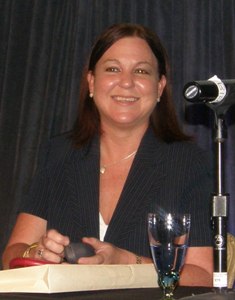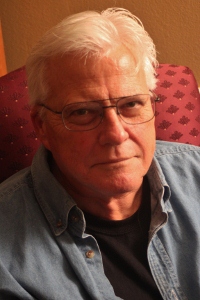Archive for November 6th, 2011

PR answer “too simple”
 (CNS): The chair of the immigration review team has said that the opposition proposal to abolish rollover completely and make the permanent residency application the point where people are rolled out of Cayman is too simple. Sherri Bodden-Cowan said government opted to suspend the rollover policy rather than abolish it completely to provide time to examine what would be the most effective way of managing the complex problems of immigration in the interests of the local population and business. She said that the Opposition Leader Alden McLaughlin’s idea of allowing as many as 20,000 people to apply for PR was not the right solution to the complex problem.
(CNS): The chair of the immigration review team has said that the opposition proposal to abolish rollover completely and make the permanent residency application the point where people are rolled out of Cayman is too simple. Sherri Bodden-Cowan said government opted to suspend the rollover policy rather than abolish it completely to provide time to examine what would be the most effective way of managing the complex problems of immigration in the interests of the local population and business. She said that the Opposition Leader Alden McLaughlin’s idea of allowing as many as 20,000 people to apply for PR was not the right solution to the complex problem.
McLaughlin recently began advocating for a complete abolition of the rollover policy and to replace it with a more transparent PR application process, making that the point where the decisions over who should stay and go would be made and that it should not reserved only for the “rich and famous”.
Speaking on Thursday evening at the Generation Now discussion on the country’s seven year term limit for work permit holders, known as the rollover policy, Bodden-Cowan said the opposition leader’s position was far too simple given the complexities of the country’s labour and immigration issues.
The immigration expert, and one of the architects of the original policy, said the point of suspending rollover was to look at the evidence and the statistics on how the policy had affected Caymanians as well as the business community and to gather public input.
“It is extremely complex and it affects everyone,” she added, pointing out that there was a need to examine occupations and industries and do a better job understanding what positions and career choices Caymanians are interested in. “It is not as simple as allowing 20,000 people to apply at year eight.”
Bodden-Cowan promised that by the time the review of rollover was finished, the committee would have a well reasoned and well thought out position and would be able to recommend to government what the policy should be replaced with. She said no one should be under the impression that the country could abolish rollover completely. Criticising McLaughlin for over simplifying the issue, she pointed out that he was still advocating to roll people out.
The opposition leader said Thursday that it was as simple as he was suggesting and that the government has opted to make things unnecessarily complicated. He noted that not all 20,000 work permit holders would be applying for PR as not all of them would stay. But, he said, whoever reached year eight should have the chance to apply.
He stated that the problem with rollover was it had become increasingly unequal. While most business sectors battled with the problem of losing staff, the financial services had become unofficially exempt. “No one is advocating that the financial service sector is not critically important but you still can’t adopt the approach that because a person works in the industry they can automatically stay,” McLaughlin added.
By doing away with what was now a discriminatory practice, he said, everyone who stayed long enough should be allowed to make an application to permanently reside here and that’s where the decision over who stays and who goes could be made fairly and transparently.
Not everyone would get through, but with a transparent system everyone would know what was expected of them in order to score enough points to stay, creating a much fairer and simpler system. He pointed out that recent legislation had already exempted caregivers from rollover, allowing them to go on to apply for PR, so he questioned why everyone who stayed long enough could not be given the same equal opportunity.
“Not everyone will get through,” McLaughlin said, “but permanent residency should not just be for the rich and famous.”
The opposition leader said government’s move to suspend rather than abolish rollover had created further complications and uncertainties and he asked what would happen to the people that are now being given a term limit extension once the two years was over. “This is government by crisis and not the way we should be running things,” McLaughlin added.

Filipino rep raises concerns over needless ban
 (CNS Business): Cayman’s unofficial Philippines consul, Arturo Ursua, says Cayman’s labour laws are already sufficient to address existing requirements in the Philippines relating to migrant workers and it should not be on the ban list. The locally based Filipino representative also said that, as a UK overseas territory, Cayman is obligated by the same treaties as Britain, which is not on the banned list. Following last week’s announcement by officials in the Philippines that it would no longer deploy workers to a list of 41 countries, including the Cayman Islands, Ursua said he was concerned about workers who were in the Philippines on vacation from local jobs and may not be able to come back. Go to CNS Business for full story and to comment
(CNS Business): Cayman’s unofficial Philippines consul, Arturo Ursua, says Cayman’s labour laws are already sufficient to address existing requirements in the Philippines relating to migrant workers and it should not be on the ban list. The locally based Filipino representative also said that, as a UK overseas territory, Cayman is obligated by the same treaties as Britain, which is not on the banned list. Following last week’s announcement by officials in the Philippines that it would no longer deploy workers to a list of 41 countries, including the Cayman Islands, Ursua said he was concerned about workers who were in the Philippines on vacation from local jobs and may not be able to come back. Go to CNS Business for full story and to comment

Government to establish George Town council
 (CNS): The government will be hosting a public meeting Tuesday to begin the process of appointing a district advisory council for the MLAs in the country’s capital. The premier along with the two UDP George Town representatives will be present but the process is being boycotted by the opposition as a result of the fact that Cabinet is appointing these local government committees rather than allowing the people themselves to choose who they want to advise their elected representatives on their behalf . Government officials said the meeting would be to inform George Town residents about the purpose, scope and composition of the new district councils which are meant to advice elected officials.
(CNS): The government will be hosting a public meeting Tuesday to begin the process of appointing a district advisory council for the MLAs in the country’s capital. The premier along with the two UDP George Town representatives will be present but the process is being boycotted by the opposition as a result of the fact that Cabinet is appointing these local government committees rather than allowing the people themselves to choose who they want to advise their elected representatives on their behalf . Government officials said the meeting would be to inform George Town residents about the purpose, scope and composition of the new district councils which are meant to advice elected officials.
The Cayman Islands Constitution 2009 calls for the establishment of Advisory District Councils for each electoral district to give localised advice from constituents to assist member s of the Legislative Assembly in their representation of their respective constituencies. They were envisioned asnon-political bodies that would focus on specific district issues but the government stirred up controversy when it established the law for the committees as appointed not elected bodies.
So far the only district to establish a council under the new legislation is the premier’s constituency of West Bay. A district council already exists in North Side which was elected at a public meeting hosted by the independent MLA, Ezzard Miller, soon after his election to office in May 2009.
The decision by the government to politicize the councils by establishing who could nominate was not just criticized by the opposition but by the constitutional commission as well which expressed disappointment over the decision to ignore its advice and had hoped government would have waited for the results of research that may have helped create more effective councils. Wil Pinneau and Julene Banks, said in the wake of the legislation that the commission had envision the councils to be more democratic and shaped more like the existing district council in North Side.
“We hoped Cabinet would have waited before rushing ahead with advisory district council legislation for some of the results of this research,” Pinneau said. “We are doing the research to evaluate how government works and what we have already … We wanted to understand what the role of the councils would be.”
The law was passed in January this year and during the debate in the country’s parliament the opposition leader and one of the architects of the constitution, Alden McLaughlin stated that the objective of creating the councils was never for them to become creatures of government “bound to carry out government’s will” and warned that the country would wind up with functionaries of government sitting in a constitutional role pushing government policy, which could not be an improvement on democracy.
The George Town member said it was a tragedy that the Constitution was being used to introduce something as undemocratic as what was being proposed.
However, Bush has defended the government’s decision to have Cabinet appoint the councils with nominees also being made by the opposition party.
In the wake of the criticisms the premier made a national televised address in which he stated government did not think they should be elected. Bush hit out at the opposition, saying if they felt so strongly about electing council members they should have written it into the constitution and accused them of tearing down what the government was trying to build.
“The constitution makes no requirement that the council members be elected and in my view for a good reason,” the premier said, adding that the councils are advisory bodies and will have no binding authority. “They are there to advise their district’s elected members of the Legislative Assembly on district matters.”
He denied that the councils would merely be a rubber stamp for government policy as there was nothing for them to rubber stamp since they are not there to approve or carry out policy but to advise their MLAs, and through their representatives in turn advise the Cabinet.
According to the law, as many as ten members may be appointed to a council and the Cabinet will select and appoint four officers. Up to six other members may be appointed. Of these regular members, at least two must be recommended by the leader of the opposition.
However, McLaughlin stated recently that the PPM will continue to boycott the process as it “runs counter to the spirit” of the original intent.
“What the government has created is party political councils weighted extremely heavily in favour of government and extensions of the UDP,” he said. “We are not going to participate in them,” he said, as he explained that the failure of the PPM to make nominations on the recent creation of the West bay council as a legitimate protest in the face of government’s decision to politicise what should have been independent bodies.
The meeting will take place at the George Town, Town Hall on Tuesday evening r 8) at 6:30pm

Author to reveal tales of treachery on Cayman’s seas
 (CNS): Claiming to still have Cayman salt running through his blood US author Jack Scott will be reading from his Cayman based novel at a local book store next week. Cayman Cross is a seafaring adventure based on a true story of misfortune on the Caribbean Sea and the fate of the survivors who landed in Grand Cayman. The first born American son in a long line of Caymanians dating back several centuries, Scott is the son of a sea captain who says his youth was steeped in old seafaring stories and legends. In this historical novel Scott tells the tale of the Cuban trading Schooner Juana Mercedes which in 1922 embarked on a journey that led her into a web of treachery, piracy and multiple murders off the Cayman Islands coast.
(CNS): Claiming to still have Cayman salt running through his blood US author Jack Scott will be reading from his Cayman based novel at a local book store next week. Cayman Cross is a seafaring adventure based on a true story of misfortune on the Caribbean Sea and the fate of the survivors who landed in Grand Cayman. The first born American son in a long line of Caymanians dating back several centuries, Scott is the son of a sea captain who says his youth was steeped in old seafaring stories and legends. In this historical novel Scott tells the tale of the Cuban trading Schooner Juana Mercedes which in 1922 embarked on a journey that led her into a web of treachery, piracy and multiple murders off the Cayman Islands coast.
“As a young man, I went to sea myself, but my father pushed and inspired me to take up a career in law,” he said. “A number of years ago, while reading a Cayman Islands history book, I happened upon just a few lines about "the last piracy" in the Cayman Islands. Right then I knew I had to research the incident and write about it—the story was just that captivating. With countless hours of research and a fair dash of imagination, the Cayman Cross piracy turned into a historical novel and became a personal contribution to my Caymanian heritage.”
Scott will launch the novel at Books & Books in Camana Bay Tuesday, 15 November at 7pm This free event will include an author presentation and audience discussion followed by a book signing.